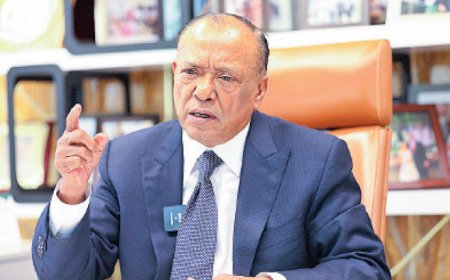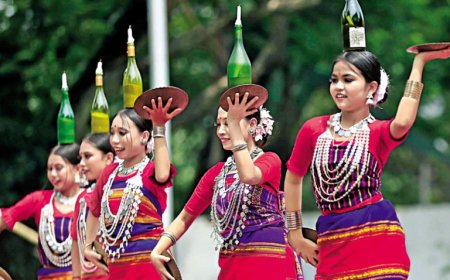Transitions to a Modern Political System
The July mass uprising in Bangladesh has raised significant new questions concerning society, politics, and history. Various political parties are addressing issues related to the state, governance, and political direction through their respective approaches. In this context, eminent economist Rehman Sobhan offers a critical analysis of the trajectory of reforms, electoral processes, and the future of politics. The article is presented in two parts—this being the concluding segment.

From Movement Politics to Structured Party Building
Since the restoration of democracy in 1991, Bangladesh has witnessed alternating governments led by the Awami League (AL) and the Bangladesh Nationalist Party (BNP), each serving two terms through generally free and fair elections. However, these tenures were marked more by an obsession with power consolidation and a winner-takes-all approach than by a genuine commitment to democratic values.
The BNP's Re-Emergence and Public Expectations
Following the recent political upheaval and the AL’s retreat from the field, the BNP has emerged as the country’s largest political force. Public anticipation has grown around whether the BNP will govern differently if returned to power. While senior BNP leaders have made promising statements about democracy and governance, field-level party operatives have exploited the political vacuum for personal gain. Despite some punitive measures, the BNP leadership must act more decisively to reform its grassroots and win back public trust.
Rise of the Youth and Formation of the NCP
The student-led uprising of July-August created a new political energy. These students, having earned respect for their activism, launched the National Citizen Party (NCP)—a third force challenging the long-standing AL-BNP dominance. While reminiscent of Prof. Muhammad Yunus’ earlier failed attempt in 2007 to introduce a third party, the NCP presents a fresh opportunity. However, their focus on rewriting the constitution has distracted from articulating concrete measures to address inequality and support social justice.
Missed Opportunities for Civic Engagement
The NCP’s youth base could have made a significant impact by supporting law enforcement or advocating for vulnerable communities in the post-uprising period. Their absence from such civic roles has limited their credibility and outreach. Without clear, actionable programs and broader appeal beyond student circles, the NCP risks losing momentum.
Strategic Challenges and Political Contradictions
The NCP’s ambiguous positions—particularly their delay in supporting elections and their critical stance on India—align them more closely with Jamaat-e-Islami (JI) than with the BNP. This has created a three-way political tension, with the BNP pushing for early elections, while the NCP and JI advocate reforms first. The NCP must clarify its stance and demonstrate political independence to maintain credibility and relevance.
The Debate: Reforms Before Elections?
Prof. Yunus, now leading the Interim Government, has prioritized reforms while committing to hold credible elections, potentially between December 2025 and June 2026. A series of commissions has proposed institutional reforms covering governance, judiciary, administration, anti-corruption, women’s affairs, and more. However, representation gaps—especially among youth, women, and minorities—limit the inclusivity of these reform initiatives.
The Role of the Consensus Commission
A Consensus Commission, headed by Yunus, has been tasked with synthesizing reform proposals from multiple expert panels. Parties have been asked to respond to 167 reform items in a questionnaire format. While innovative, this method oversimplifies complex governance challenges and may not lead to a unified or implementable reform agenda. The extent to which this format can facilitate genuine consensus remains uncertain.
AL’s Future and Legal Complexities
A critical unresolved issue is the fate of the Awami League. While the NCP seeks to ban it and the BNP remains non-committal, excluding the AL from future elections could have serious legal, political, and international repercussions. The judicial process to convict AL leaders must follow the rule of law, but the timeline remains uncertain. Any attempt to ban the AL could invite domestic unrest and global criticism, particularly from India and the United Nations, which advocate for inclusive elections.
The Shadow of Extremism and Political Violence
The post-uprising environment has emboldened extremist voices. Growing insecurity among women and minorities, alongside threats from fundamentalist groups and online influencers, is eroding democratic freedoms. If violence and repression persist, even under a reform-minded government, meaningful democratic progress will be jeopardized.
Economic Concerns and Governance Pressure
Economic stability remains a pressing concern for the Interim Government. While some progress has been made, recent international trade developments—such as U.S. tariff decisions—pose new challenges. If governance falters on law and order or the economy, public confidence in the transition process may decline, weakening the government’s ability to oversee free and fair elections.
A Hopeful Yet Challenging Path Forward
Despite uncertainties, Bangladesh finds hope in the leadership of Muhammad Yunus, a figure of international stature and integrity. Misguided efforts to label him as extremist have little basis. His leadership offers a chance for a democratic reset, but this window will close unless political actors commit to reforms, consensus, and peaceful democratic processes.
What's Your Reaction?





















































































